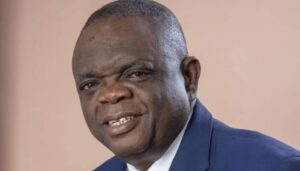
Michael Olawale-Cole
The Lagos Chamber of Commerce and Industry (LCCI) has called on the federal government to create funding for critical infrastructure, and special-purpose intervention in the nation’s power sector, to save the troubled sector from total collapse.
Making the call at the 134th Annual General Meeting (AGM) of the Chamber, held in Lagos, recently, its president, Asiwaju Michael Olawale-Cole, argued that the frequent collapses of the national grid, with the one of September 2022, making it the 7th in Year 2022, had shown that the grid could no longer meet the electricity demands of Nigerians.
He identified vandalism of power installations, disruption in gas supply, inadequate metering of consumers in the sector, and lack of capacity of the distribution companies (Discos), in the sector, to take up power generated by the generating companies (Gencos), as some of the challenges facing the sector.
“With the cost of diesel at record levels and persistent poor power supply, businesses are running on unsustainable costs and producing at uncompetitive prices,” Cole stated.
He, therefore, warned that, if not quickly tackled, the challenges might lead to further job losses, with the nation’s GDP potential and projections for 2023, subdued.
The LCCI boss also called on the government to invest more on technology to fight vandalism of pipelines and power installations.
He stressed the need for the federal government to tackle the worsening insecurity in many parts of the country, and implement investment-friendly policies to create an enabling investment and regulatory environment.
“The total value of capital importation into Nigeria in the second quarter of 2022 stood at US$1,535.35 million from US$875.62million in the corresponding quarter of 2021, showing an increase of 75.3%. when compared to the preceding quarter, capital importation decreased by 2.40% from US$1,573.14million.
“The largest amount of capital importation was received through portfolio investment which accounted for 49.33% (US$757.32million). This was followed by other investment with 41.09% (US$630.87 million) and foreign direct investment (fdi) accounted for 9.58% (US$147.16 million) of total capital imported in Q2 2022.
“The concern here is that FDIs (at a low of 9.58 percent) are more valuable than the other types of investment inflows. We therefore need more FDIs to create jobs and increase output in the economy,” Cole argued.




Comments